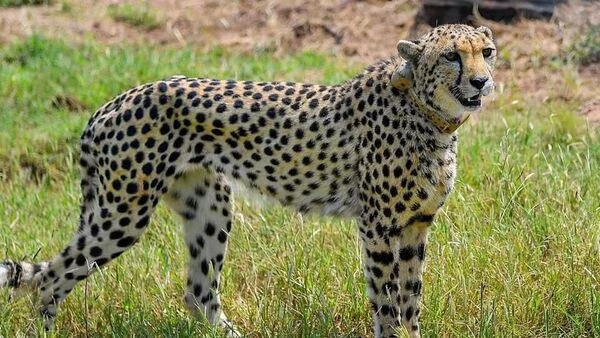NB Explains | Centre clears the air over deaths of cheetahs
Total Views |
New Delhi, July 17: The Ministry of Environment, Forest and Climate Change has responded to the recent deaths of cheetahs within Madhya Pradesh's Kuno National Park. It clarified that out of the 20 adult cheetahs that were translocated, five mortalities were due to natural causes.

It should be noted that eight cheetahs have died so far in Kuno, which includes five adults that were translocated and three cubs that were born in the national park, in a span of less than five months.
Analysis on over the deaths of cheetahs
Efforts are underway to investigate the cause of the deaths, including consultations with international cheetah experts and veterinary doctors from South Africa and Namibia. Independent national experts are also reviewing existing monitoring protocols, protection measures, managerial inputs, veterinary facilities, and training and capacity-building aspects.
The Cheetah Project Steering Committee is closely monitoring the project's implementation and has expressed satisfaction with the progress so far.
"Global experience particularly from South Africa suggests that in the initial phase of reintroduction of Cheetah in African countries has resulted in more than 50% mortality of introduced Cheetahs," it said.
Govt on media reports
The ministry has also denied the media reports. It said, "There are reports in the media attributing these Cheetah deaths to other reasons including their radio collars etc. Such reports are not based on any scientific evidence but are speculation and hearsay."
"Project Cheetah is yet to complete a year and it will be premature to conclude the outcome in terms of success and failure, since Cheetah reintroduction is a long-term project. In the last 10 months, all stakeholders involved in this project have gained valuable insights in Cheetah management, monitoring and protection. There is optimism that the project will succeed in the long run and there is no reason to speculate at this juncture," it added.
Project Cheetah
Under Project Cheetah, a total of 20 radio collared Cheetahs were brought from Namibia and South Africa to Kuno National Park, Madhya Pradesh, in a first ever transcontinental wild to wild translocation. After mandatory quarantine period, all Cheetahs were shifted to larger acclimatization enclosures. Currently, 11 Cheetahs are under free ranging condition and 5 animals, including a cub born on Indian soil, are within quarantine enclosures. Each of the free ranging Cheetahs is being monitored round the clock by a dedicated monitoring team.
Government of India has deployed a dedicated NTCA team of officials to work in close coordination with the field officials at the Kuno National Park. This team is engaged for analyzing real time field data collated by the field monitoring teams for deciding upon various management aspects including health and related interventions required to be in place for better management.


